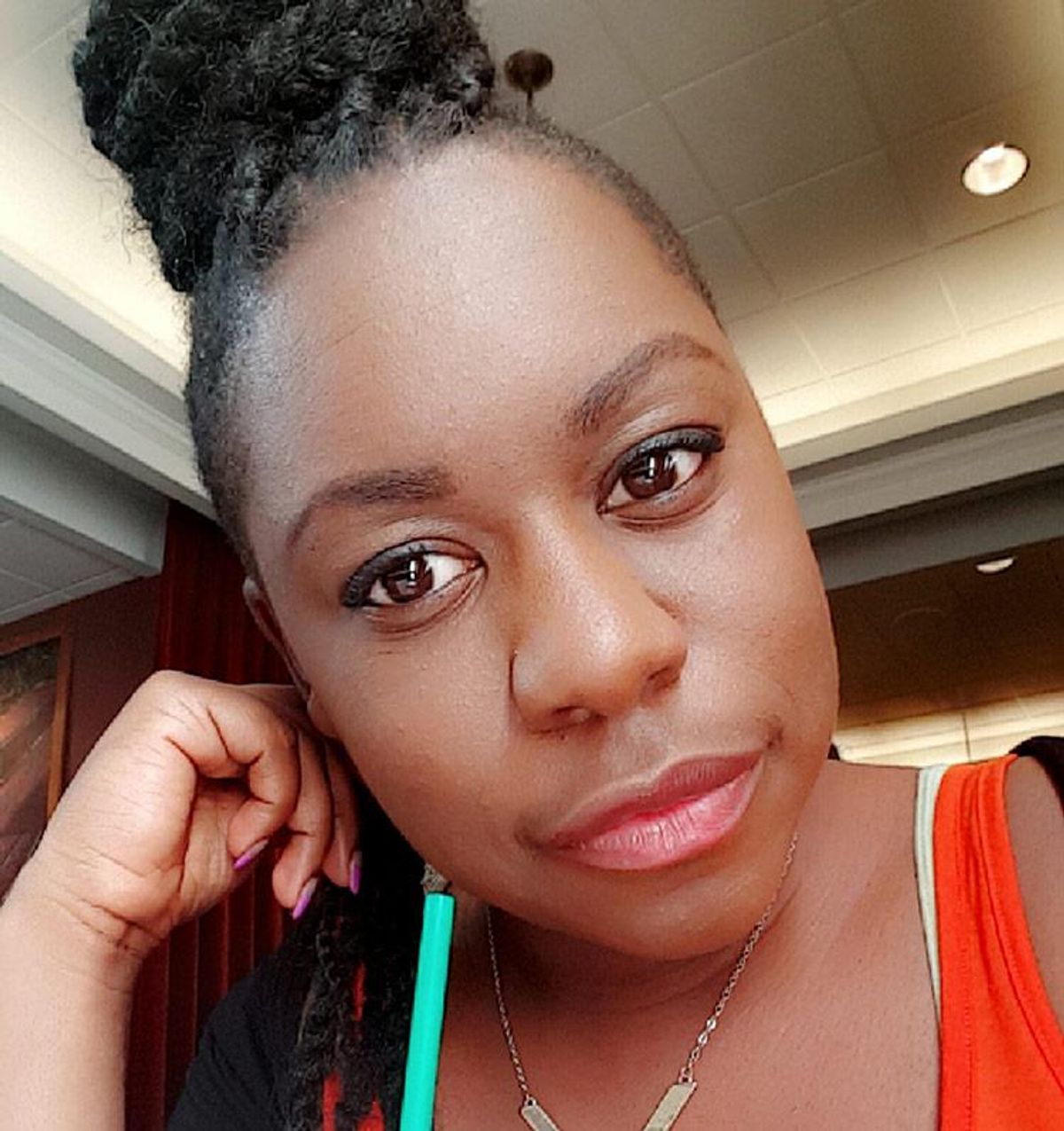Tranisha Arzah has stopped fighting HIV.
To be fair, the 26-year-old peer advocate has been pitted against the disease for as long as she can remember. And by no means does this mean Arzah has given up. But, “instead of battling HIV,” Arzah eventually decided “I was going to live my only life living with it and…making sure others truly live their best lives with HIV too; not against it.”
In some ways, Arzah has made peace with the disease that left an indelible mark on her life. Born in 1990 to a Seattle couple struggling with drug addiction, she perinatally-acquired HIV.
“Being born with HIV put a different perspective on everything in my life,” Arzah wrote in 2013. “When I was younger, the only thing I knew was that I was sick. So were my father, mother, brother and grandparents. I was about 4-years-old when my mom and brother passed away.”
Separated from the rest of her family, Arzah was put in foster care, where she was eventually adopted by her foster family.
“There was definitely defining moments in my life that shifted me onto a course of advocacy for others,” she tells Plus. But, she’s not certain what role her familial connection to HIV has played. “I don't know if that was because of my unique experience.”
Now Arzah works with BABES Network–YWCA, a peer education and support program for women living with HIV. She's also a camp counselor, and a mentor, and she sits on the board of Positive Women's Network- USA.
“Being selected to serve as a new Positive Women's Network- USA board members in August of 2015 was a monumental experience for me,” Arzah recalls. “I never would have thought I would be serving on a national membership body of women living with HIV and our allies!”
Arzah bridges her national work — including attending United States Conference on AIDS events as a National Minority AIDS Council youth scholar — with local activism. She and a team of other youth leaders convinced the Seattle mayor to declare April Youth HIV/AIDS Awareness Month. A few years ago, Arzah overcame nerves to address the crowd at Seattle’s annual End AIDS Walk. She’d been invited to “speak in front of hundreds about my experience as a person living with HIV.” She remembers, “I was sick to my stomach even right to the very moment I went behind that podium to speak. I have been attending AIDS walks since I was a pre-teen and it never crossed my mind that I could do that one day. It was a vulnerable and brave accomplishment that I had the honor to do.”
Self-identifying as a queer woman and black feminist, Arzah defines the f-word as “a belief that women and young girls are and should be treated as potential intellectual equals and social equals to men and young boys.”
“Black feminism,” she adds, “is a school of thought which argues that sexism, class oppression, gender identity and racism are inextricably bound together…Also, black women's experiences with both racial and gender oppression results in needs and problems distinct from white women and black men in that black women must struggle for equality both as women and as African-Americans.”
"What is thrilling to me about Tranisha is that her perspective embodies exactly what the HIV movement needs,” says Olivia Ford, a contributing editor at The Body and one of the people who nominated Arzah. "She is an intersectional thinker and changemaker, deftly and quite matter-of-factly making connections in her life and activism between patriarchy, heterosexism, transphobia, racism, classism, state violence, and the ongoing HIV epidemic."
Arzah's ability to see bigger issues connected with local ones is reflected in her goals for the future.
In the short term, she’s looking forward to next month’s HIV is Not a Crime National Training Academy which will unite and train advocates from across the country on HIV-criminalization laws and best practices for repealing or altering them.
“I’m very excited to join this huge national conversation and to be actively working on best strategies for my state of Washington around our current laws criminalizing people living with HIV,” Arzah says.
And longer term?
Arzah volunteers at her local youth detention center where she helps lead monthly discussions about HIV and prevention with the girls serving time. “Every time I leave there,” she says, “I gain a more sense of purpose and [the] fight in me that pushes me to continue this road of advocating for marginalized groups.”
“I dream about being that difference in those girls lives,” Arzah continues. The unmet needs of marginalized peoples are a huge barrier—not only to equality, but also to preventing HIV, and reaching her goal of helping others “truly live their best lives with HIV”— a barrier, Arzah knows she has “started to chip [away] at, but there's a long haul to go for my generation.”
Arzah may have quit battling her disease, but she’s not going anywhere: “I am ready to make that commitment,” she says.
With women like Arzah leading the way there’s no limit to what her generation could achieve.
That Arzah is able to all she does with what Ford calls "such immense warmth, fierceness, sweetness, brilliance, and grace," is just another reason other advocates are big fans.
"It is always a treat and a learning experience to read her writing, to hear her lift her voice at a speaking engagement or workshop, and to just be in her presence," Ford adds. "I look forward to many more years witnessing the ever-growing impact she makes as an intersectional black feminist activist living and thriving with HIV."












































































